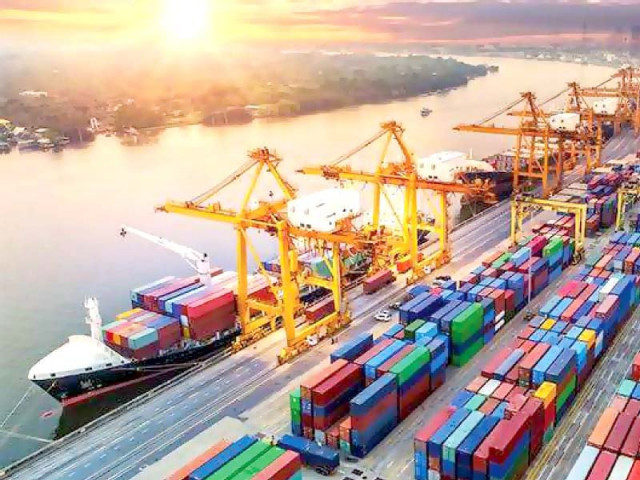Delicate balance of trade, economics and geopolitics
Country needs to look for opportunities to diversify trade, investment portfolios

Henry Kissinger once said, “America has no permanent friend or enemy, only interests”.
The famous quote should form the cornerstone of foreign policy of any country, as it is demonstrated in the recent visit by US President Joe Biden to the European Union. It was his first formal visit to the European bloc to rekindle the historic transatlantic alliance, which faced a major setback during the Trump era.
Although western powers are gearing up for what they perceive as the emerging threat from the alliance between China and Russia, the global trade data shows that China still remains the largest trading partner of the US and Europe.
As per April 2021 data of the US Census Bureau, the US imported $151 billion of good and services from China, ranking top in the list, and which accounted for 17.5% of the total import bill of the US.
Once again, the geostrategic location of Pakistan is at the epicentre of a major tectonic shift in the geopolitical realignment, which is happening amid the turmoil caused by the US withdrawal from Afghanistan.
It is now very clear about Pakistan’s strategic direction, however, the most critical aspect is to constantly review the trade and economic impact of policy decisions.
So far, the numbers published by the State Bank of Pakistan (SBP) revealed that the umbilical cord feeding the country’s economy was still largely attached to the old western camp.
The tale of two charts - remittances and exports - puts things into perspective when it comes to maintaining the inflow of foreign exchange to build and sustain the strategic reserves and not to run down on the current account balance again.
The impact that the western bloc has on global institutions is very obvious from the recent outcome of Financial Action Task Force (FATF) meeting that kept Pakistan in the grey list despite being largely compliant with the action plan and from the immense pressure exerted on the country with a highly front-loaded IMF programme. These are a few examples of the leverages that western powers have as a major donor of the IMF.
The world is largely divided, even when it comes to dealing with the Covid-19 pandemic, which is posing a common threat to the humanity – recall my article “Surviving pandemic in deeply polarised world”, where I highlighted the dilemma in detail.
Travel advisories and recent visa issues for Pakistanis in the Gulf Cooperation Council (GCC) bloc, which accounts for half of the remittance flow, and recent shortage of AstraZeneca vaccine in Pakistan have caused havoc, may disrupt the free movement of Pakistani workforce and eventually affect the flow of remittances.
The same is true for Pakistan’s export sector where it relies heavily on the European and US markets. The recent resolution by the European Union to review the GSP Plus status of Pakistan during nationwide protests against France highlights the vulnerabilities and dependency on the status quo.
The long-term strategy should be to always look for opportunities to diversify trade and investment portfolios and discover new avenues and here Pakistan’s trade missions abroad have to play a pivotal role. In the meantime, the foreign policymakers have to make sure not to fall in the trap of forming new alliances at the cost of existing ones as we have seen in the past.
Thomas Jefferson once said, “Peace, commerce and honest friendship with all nations ... entangling alliances with none.”
The writer is a financial market enthusiast and attached to Pakistan’s stocks, commodities and emerging technology
Published in The Express Tribune, June 28th, 2021.
Like Business on Facebook, follow @TribuneBiz on Twitter to stay informed and join in the conversation.


















COMMENTS
Comments are moderated and generally will be posted if they are on-topic and not abusive.
For more information, please see our Comments FAQ